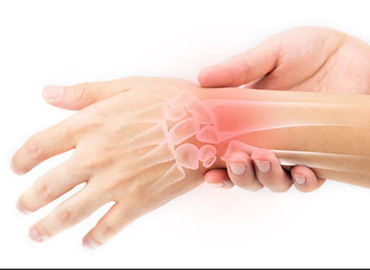


Back pain affects millions, often leading to mobility issues and reduced quality of life. At Plexuss Pain & Spine Clinic, we offer advanced, minimally invasive treatments tailored to your unique needs, helping you find lasting relief and regain comfort.


Epidural Steroid Injections: Target nerve-related pain (e.g., sciatica) to reduce inflammation and provide long-lasting relief.
Facet Joint Injections: Relieve pain from spinal arthritis with targeted injections.
Radiofrequency Ablation: Disrupt pain signals at the nerve level to alleviate chronic pain from conditions like facet joint arthritis.
Nerve Blocks: Interrupt pain pathways for relief and diagnosis, ideal for radiating pain like sciatica.
Ozone Nucleolysis: Treat herniated discs with ozone gas to reduce disc size and pressure, offering fast recovery and minimal side effects.
Disc Decompression: Relieve pressure on herniated discs with minimally invasive decompression procedures for significant pain relief.
Plexuss Pain & Spine Clinic combines advanced medical technology with compassionate care to provide long-term solutions for chronic back pain. Our team works with you to restore mobility and improve your quality of life.
Contact us today to explore minimally invasive treatments and take the first step towards a pain-free life.
Back pain can arise from various sources, including muscle strains, herniated discs, arthritis, spinal stenosis, sciatica, and injuries. Lifestyle factors such as prolonged sitting, poor posture, heavy lifting, and lack of physical activity can also lead to back pain.
At Plexus, we begin with a thorough review of your medical history and perform a physical exam. If needed, we may suggest imaging tests like X-rays, MRIs, or CT scans to pinpoint the root cause of your back pain.
Our approach to treatment depends on the underlying cause. Options may include physical therapy, medications, therapeutic injections, nerve blocks, spinal cord stimulation, and lifestyle adjustments. In certain cases, minimally invasive procedures may be recommended.
Yes, making small lifestyle adjustments can have a big impact. Regular low-impact exercises, core strengthening, maintaining a healthy weight, and practicing good posture can all help alleviate and prevent back pain
At Plexus, we offer a comprehensive approach to managing chronic back pain, including detailed evaluations, customized treatment plans, and advanced interventional techniques. Our goal is to help you achieve significant relief and enhance your quality of life.
Absolutely! Many back pain conditions respond well to non-surgical treatments. At Plexus, we focus on non-invasive minimal interventional techniques like epidural steroid injections, facet joint injections, ozone nucleolysis and nerve blocks to help you avoid surgery whenever possible.
If your back pain is intense, lasts more than a few days, or is accompanied by symptoms like numbness, weakness, or issues with bowel and bladder control, it’s essential to seek medical attention as soon as possible.
During your first visit, our specialists will discuss your symptoms in detail, perform a comprehensive examination, and may suggest imaging tests if necessary. From there, we’ll create a treatment plan tailored to your needs and goals for pain relief.

Neck pain is becoming increasingly common due to poor posture, prolonged screen time, and repetitive stress from modern tech use. At Plexuss Pain & Spine Clinic, we provide advanced, minimally invasive treatments tailored to your condition. Our goal is to relieve pain, restore mobility, and improve your quality of life—helping you move beyond chronic neck discomfort and live pain-free.


Regenerative Therapy: Uses PRP to heal neck tissues, reduce inflammation, and restore mobility.
Radiofrequency Ablation: Targets cervical nerves to block pain signals and provide long-lasting relief.
Cervical Epidural Steroid Injections: Reduce inflammation and nerve compression to ease chronic neck pain.
Trigger Point Injections: Release painful muscle knots in the neck and shoulders for fast relief.
Physical Therapy & Rehabilitation: Strengthen neck muscles, correct posture, and improve flexibility for long-term recovery.
Plexuss Pain & Spine Clinic offers minimally invasive neck pain treatments using advanced techniques and personalized care plans.
Start your journey to pain-free living—contact us today for effective neck pain relief.
Neck pain can stem from various sources, including muscle strains, poor posture, herniated discs, arthritis, nerve compression, and injuries such as whiplash. It may also develop from prolonged computer use, stress, or sleeping in an awkward position
At Plexus, our pain specialists use a combination of medical history, physical examination, and, if necessary, imaging studies like X-rays, USG, MRI, or CT scans to determine the underlying cause of your neck pain.
Treatment plans vary based on the cause but may include physical therapy, medications, pain-relieving injections, ergonomic adjustments, and in some cases, minimally invasive procedures to alleviate pain and restore function.
Poor posture, especially from prolonged screen time or improper desk setup, can strain neck muscles and compress surrounding structures. Over time, this can lead to persistent neck pain and stiffness.
Applying heat or ice, gentle stretching exercises, practicing good posture, and using an ergonomic pillow can help relieve mild neck pain. However, persistent pain should be evaluated by a medical professional.
Yes, most neck pain cases can be managed without surgery. Our team at Plexuss focuses on non-surgical approaches, including physical therapy, medication, and interventional pain management techniques, to address the pain and prevent recurrence.
Common injections for neck pain include epidural injections, nerve blocks, and facet joint injections. These are performed by our skilled professionals to provide targeted relief and reduce inflammation around the affected area
We offer a comprehensive approach to chronic neck pain, including thorough evaluations, customized treatment plans, and advanced pain management techniques to help you achieve sustained relief and improved quality of life.
If neck pain is severe, persistent, or associated with symptoms like arm numbness, weakness, or headaches, it's essential to seek medical attention. Early diagnosis and treatment can help prevent worsening or chronic issues.

Knee pain affects people of all ages, impacting mobility, daily activities, and overall quality of life. At Plexuss Pain & Spine Clinic, we provide advanced, FDA-approved, minimally invasive treatments designed to reduce pain, restore function, and delay or avoid surgery. Whether caused by osteoarthritis, injury, or wear and tear, our personalized treatment plans help patients regain movement and live pain-free with long-lasting results.


Regenerative Therapy: PRP injections use growth factors from your blood to promote healing, reduce inflammation, and restore knee function.
Hyaluronic Acid Injections: Adds lubrication to reduce knee joint friction and relieve osteoarthritis pain.
Radiofrequency Ablation (RFA): Blocks pain signals from specific knee nerves to provide long-lasting relief without surgery.
Corticosteroid Injections: Reduces inflammation and pain during flare-ups, supporting improved knee mobility.
Comprehensive Rehabilitation: Personalized rehab programs to strengthen knees, improve function, and prevent recurrence.
At Plexuss Pain & Spine Clinic, we offer FDA-approved, minimally invasive treatments that deliver real relief for knee pain. Our expert team combines advanced care with rehabilitation for long-term results.
Take the first step toward pain-free mobility—contact us today to start your recovery journey.
Knee pain can result from various conditions, including arthritis (like osteoarthritis and rheumatoid arthritis), ligament injuries, meniscus tears, tendonitis, bursitis, or conditions like patellar syndrome. It can also be caused by overuse, obesity, poor posture, or traumatic injuries.
Our specialists at Plexuss Pain Management Clinic use a comprehensive approach, including physical examinations, reviewing medical history, imaging studies (like X-rays, MRI, or ultrasound), and occasionally lab tests, to diagnose the underlying cause of knee pain.
Treatment varies based on the diagnosis and may include physical therapy, medications, knee braces, injections (such as corticosteroids or hyaluronic acid), and minimally invasive procedures like radiofrequency ablation of genicular nerves. In severe cases, surgery might be recommended.
Maintaining a healthy weight, engaging in low-impact exercises, strengthening the muscles around the knee, and avoiding activities that strain the knee can help reduce pain and improve mobility.
Yes, many patients find relief with non-surgical interventions. Plexuss offers therapies like injections, pain interventions, and lifestyle guidance to manage knee pain effectively without surgery whenever possible.
Common injection therapies include corticosteroids, hyaluronic acid, platelet-rich plasma (PRP) injections and radiofrequency ablation of genicular nerves. Each option works differently, and our experts will recommend the best choice based on your condition
At Plexus, we offer personalized knee pain management plans, including expert diagnostics, advanced treatments, and ongoing support for your journey to pain relief and mobility improvement. Our goal is to help you regain an active lifestyle with minimal discomfort.
If knee pain persists for more than a few days, limits your mobility, or interferes with daily activities, it’s essential to seek medical advice. Early intervention can prevent the condition from worsening.
During your initial visit, our team will conduct a thorough assessment, discuss your symptoms, and suggest a personalized treatment plan. We’ll also explain the options available and address any concerns you may have about knee pain management.

Headaches can range from occasional discomfort to chronic, debilitating pain that interferes with daily life. At Plexuss Pain & Spine Clinic, we specialize in diagnosing and treating all types of headaches—including migraines, tension headaches, and cervicogenic headaches—using advanced, minimally invasive techniques. Our targeted, evidence-based treatments are designed to provide lasting relief when traditional methods fall short, helping you return to a pain-free, productive life.


Nerve Blocks: Target and numb specific nerves (like occipital nerves) to reduce migraine and cluster headache frequency and intensity.
Botulinum Toxin (Botox) Injections: FDA-approved treatment for chronic migraines; relaxes muscles and prevents severe headache episodes.
Sphenopalatine Ganglion (SPG) Block: Provides fast relief by targeting nerve clusters in the nasal cavity linked to migraines and cluster headaches.
Radiofrequency Ablation (RFA): Treats cervicogenic headaches by disrupting pain signals from the neck to offer long-term relief.
Plexuss Pain & Spine Clinic specializes in advanced, minimally invasive headache treatments that go beyond medication. Our expert team offers targeted solutions for lasting relief, especially for chronic headache sufferers.
Don’t let headaches control your life—contact us today to explore personalized care options that work.
There are several types of headaches, including tension headaches, migraines, cluster headaches, and sinus headaches. Each type has distinct characteristics and may require a different approach to treatment
Headaches can result from stress, muscle tension, dehydration, sinus issues, vision strain, hormonal changes, or neurological conditions. Migraines, for example, are often linked to genetics and environmental factors, while tension headaches may be due to posture or stress
Our team will start by reviewing your medical history and asking about your headache patterns, triggers, and symptoms. If needed, we may use imaging tests, such as MRI or CT scans, to rule out underlying causes
Depending on the type and cause of your headache, treatments may include lifestyle changes, medications, nerve blocks, and trigger point injections. For chronic migraines, we may recommend Botox injections or other interventional options
Yes, many headaches can be managed through lifestyle modifications, physical therapy, relaxation techniques, and identifying and avoiding triggers. At Plexus, we offer holistic approaches to address headache pain without relying solely on medication.
Stress is a common trigger for headaches, especially tension headaches. When stressed, muscles around the neck and scalp can tighten, causing pain. Learning stress management techniques can be very helpful in reducing headache frequency.
Yes, migraines are often triggered by certain foods, hormonal changes, sleep disturbances, bright lights, or even strong smells. Keeping a headache diary to track potential triggers can help identify patterns and avoid future migraines
For those experiencing chronic headaches, we offer a comprehensive approach, including medication management, trigger point therapy, lifestyle guidance, and interventional treatments like nerve blocks to provide long-term relief.
You should consider seeing a doctor if you experience frequent headaches that interfere with daily life, headaches that worsen over time, or headaches accompanied by symptoms like nausea, visual changes, or neurological symptoms. Sudden, severe headaches should be addressed immediately.
During your first visit, we’ll discuss your headache history, possible triggers, and symptoms in detail. We may conduct a physical exam or recommend imaging if necessary. Together, we’ll develop a treatment plan tailored to your specific needs and goals.

Shoulder pain is a common issue that affects people of all ages, limiting mobility and reducing quality of life. At Plexuss Pain & Spine Clinic, we offer advanced, minimally invasive treatments to help alleviate shoulder pain, restore function, and improve movement. Whether caused by injury, arthritis, or tendonitis, our personalized treatment plans are designed to provide long-lasting relief, helping patients return to their daily activities pain-free.


Corticosteroid Injections: Target inflammation to reduce swelling and irritation in the shoulder joint or tendons.
Platelet-Rich Plasma (PRP) Therapy: Accelerates tissue regeneration by injecting platelets from your own blood to heal damaged shoulder tissues.
Ozone Therapy: Uses ozone gas injections to reduce inflammation and promote healing in conditions like arthritis and tendonitis.
Hydrodilatation for Frozen Shoulder: Involves injecting a sterile fluid into the joint to stretch and relieve stiffness, improving mobility.
Radiofrequency Ablation (RFA): Disrupts nerve signals responsible for chronic shoulder pain, providing long-term relief for conditions like arthritis.
Nerve Blocks: Interrupts pain signals for patients experiencing severe nerve-related shoulder pain, offering diagnostic and therapeutic benefits.
At Plexuss Pain & Spine Clinic, we specialize in advanced, minimally invasive treatments to relieve shoulder pain and restore mobility. Our customized care plans are tailored to the root cause of your pain, ensuring lasting results with minimal recovery time.
Take control of your shoulder pain—contact us today to start your path toward recovery and better quality of life.
Shoulder pain can be caused by rotator cuff injuries, tendonitis, arthritis, bursitis, or conditions like frozen shoulder. Injuries from repetitive movements, overuse, or trauma (like dislocations) can also lead to shoulder discomfort
We’ll begin with a conversation about your symptoms and medical history, followed by a physical examination. Depending on the findings, we may recommend imaging, such as X-rays, an MRI, or ultrasound, to provide a clear picture of the issue.
Yes! Regular stretching, strengthening exercises for the shoulder, and paying attention to posture can help prevent shoulder pain. Our experts at Plexuss can recommend a personalized exercise and lifestyle plan tailored to your needs
In most cases, yes. Non-surgical approaches like physical therapy, pain-relieving injections, and activity adjustments are highly effective in managing shoulder pain, and these are the preferred initial options at Plexus
Poor posture, especially from prolonged sitting or improper ergonomics, places added strain on the shoulders, which can lead to muscle tension, pain, and reduced flexibility over time.
Treatment options range from physical therapy, medications, and targeted injections to more advanced, minimally invasive procedures if needed. Your specific treatment will depend on the cause of your shoulder pain.
We provide PRP (platelet-rich plasma) injections ,joint lubrication injections, prolotherapy, intraarticular ozone therapy for targeted relief and enhanced healing
For chronic shoulder pain, we provide a full spectrum of care, including advanced pain management techniques, therapeutic injections, and individualized rehabilitation programs designed to reduce pain and improve your quality of life.
You should see a doctor if your shoulder pain is severe, lingers for more than a few days, or if it’s affecting your ability to move or perform daily tasks. Other signs to watch for include swelling, redness, or numbness.
During your initial appointment, our team will review your symptoms and medical history, assess shoulder movement, and may suggest imaging tests if necessary. We’ll then create a customized treatment plan to address your specific pain management goals

Fibromyalgia is a complex chronic condition characterized by widespread pain, fatigue, and heightened sensitivity to touch. It affects millions worldwide, with many cases remaining underreported and misdiagnosed, especially in India. At Plexuss Pain & Spine Clinic, we are dedicated to providing specialized care to help patients manage fibromyalgia and regain their quality of life through advanced, minimally invasive treatments.


Trigger Point Injections: Target muscle knots and tender points to alleviate localized pain and improve mobility.
Low-Dose Naltrexone (LDN): Regulates immune responses and reduces CNS inflammation, improving pain, fatigue, and sleep.
Peripheral Nerve Stimulation (PNS): Uses mild electrical pulses to disrupt pain signals, offering relief from widespread pain.
IV Therapy for Energy & Recovery: Customized nutrient therapy to improve energy levels, mood, and address deficiencies.
Lifestyle & Functional Rehabilitation: Enhances muscle strength and flexibility through guided exercise and posture training.
Sleep & Stress Management Protocols: Cognitive behavioral strategies and medication to improve sleep quality and manage stress.
Plexuss Pain & Spine Clinic offers advanced, minimally invasive treatments for fibromyalgia to help reduce pain, improve energy, and enhance overall well-being. Our personalized care plans are tailored to address the unique needs of each patient, ensuring long-term relief and improved quality of life.
Let us help you regain control of your life—contact us today to explore our fibromyalgia treatments and start your path to recovery.
Fibromyalgia is a chronic condition characterized by widespread muscle pain, fatigue, sleep disturbances, and tenderness in specific areas of the body. It is often associated with symptoms like headaches, memory issues, and mood changes.
The exact cause of fibromyalgia is unknown, but it’s believed to involve abnormal pain processing by the brain and spinal cord. Genetics, infections, physical or emotional trauma, and stress may all play a role in triggering or worsening fibromyalgia symptoms.
People with fibromyalgia commonly experience widespread muscle pain, fatigue, difficulty sleeping, "fibro fog" (cognitive issues), headaches, and irritable bowel syndrome. Symptoms can vary in intensity and may flare up under stress, physical activity, or other triggers.
Fibromyalgia diagnosis is primarily based on symptom history and physical examination. At Plexus, we assess pain patterns, conduct a thorough evaluation of symptoms, and may use lab tests to rule out other conditions with similar symptoms.
While no specific diet is proven to cure fibromyalgia, a balanced, anti-inflammatory diet rich in whole foods, fruits, vegetables, and lean proteins may help reduce symptom flares and improve overall well-being. Avoiding processed foods and sugars may also help some individuals
Treatment focuses on symptom relief and may include medications for pain and sleep, physical therapy, lifestyle adjustments, and counseling. At Plexus, we offer a holistic approach to fibromyalgia, which may involve medications, physical therapy, and relaxation techniques to help manage pain and improve quality of life.
Yes, fibromyalgia can often be managed with non-medication approaches, such as physical therapy, exercise, stress management, cognitive behavioral therapy, and other lifestyle changes. Our team at Plexuss can create a tailored plan to help you find relief without relying solely on medications.
Gentle, regular exercise can improve muscle strength, reduce pain sensitivity, and boost energy levels. Low-impact activities like walking, swimming, and stretching are often effective for those with fibromyalgia, and our therapists can guide you in developing a personalized exercise routine.
At Plexus, we offer a range of interventional options to help manage fibromyalgia symptoms, including trigger point injections, nerve blocks, Botox injections, and other targeted pain-relief therapies. These treatments aim to reduce pain sensitivity and improve daily function.
If you’re experiencing persistent, widespread pain, fatigue, and other symptoms that interfere with daily life, it’s important to seek medical advice. Early diagnosis and treatment can improve symptom management and quality of life.

Neuropathic pain is a complex and often debilitating condition caused by nerve damage or dysfunction. Unlike regular pain, which results from injury or inflammation, neuropathic pain originates from abnormal nerve signaling. It can lead to chronic discomfort, burning sensations, numbness, and shooting pain that interferes with daily activities. At Plexuss Pain & Spine Clinic, we specialize in advanced, minimally invasive treatments to provide long-lasting relief and improve your quality of life.


Nerve Blocks: Involves the injection of anesthetics or anti-inflammatory medications near the affected nerve to interrupt pain signals and provide relief.
Radiofrequency Ablation (RFA): Uses heat energy to disrupt nerve pathways, preventing chronic pain signals from reaching the brain.
Epidural Steroid Injections: Reduces inflammation around irritated nerves to alleviate pain and improve mobility, especially for spinal-related neuropathic pain.
Platelet-Rich Plasma (PRP) Therapy: Utilizes the body's healing properties to repair damaged nerves and promote regeneration, particularly for conditions like diabetic neuropathy.
Ozone Therapy: Uses ozone injections to reduce nerve inflammation and promote healing, offering relief for conditions like sciatica and post-herpetic neuralgia.
Spinal Cord Stimulation (SCS): Involves implanting a device to deliver mild electrical pulses to the spinal cord, disrupting pain signals and providing relief from severe neuropathic pain.
At Plexuss Pain & Spine Clinic, we specialize in advanced, minimally invasive treatments for neuropathic pain. Our personalized care plans focus on addressing the root cause of nerve pain to provide lasting relief and improve your quality of life.
If you suffer from neuropathic pain, contact us today to explore our comprehensive, non-surgical treatment options and take the first step toward a pain-free life.
Neuropathic pain is a type of chronic pain caused by damage or dysfunction of the nerves. Unlike other types of pain that result from injury to tissue (such as a cut or a burn), neuropathic pain stems from issues within the nervous system itself. It can be caused by conditions like diabetes, multiple sclerosis, shingles, spinal cord injuries, chemotherapy, and even cancer. Neuropathic pain is often described as burning, tingling, or shooting pain and can be persistent or intermittent.
Unlike nociceptive pain, which is caused by direct injury to tissues, neuropathic pain originates from nerve damage or dysfunction. This type of pain is often chronic, and its sensations are unique, including shooting, burning, or "electric shock"-like feelings. Neuropathic pain may not respond well to standard pain relievers like NSAIDs and often requires specialized treatments.
People with neuropathic pain typically report:
Plexuss Pain Management Clinic offers a variety of treatments for neuropathic pain:
Lifestyle changes can improve overall well-being and reduce neuropathic pain intensity:
For diabetic neuropathy, Plexuss offers specialized treatment plans that include medications to relieve nerve pain, physical therapy to improve circulation, and lifestyle modifications to manage diabetes and reduce pain symptoms. Additionally, interventional options like nerve blocks or spinal cord stimulation can be effective for severe cases.
While neuropathic pain may not always be curable, effective treatments can significantly reduce pain and improve quality of life. Early intervention and a comprehensive pain management plan can make a substantial difference, especially with a tailored, multi-modal approach like that offered at Plexus.
Seek medical help if you experience persistent burning, tingling, or shooting pain, especially if it interferes with daily activities or sleep. Early treatment can prevent worsening and provide more effective relief options. Plexuss Pain Management Clinic offers consultations and comprehensive care for neuropathic pain to help patients regain comfort and function
During your first visit, our specialists will review your medical history, symptoms, and any previous treatments. We may conduct a physical examination and recommend imaging or other tests to assess nerve health. Based on this evaluation, we’ll develop a personalized pain management plan, which may include medications, lifestyle recommendations, and interventional treatments.

Cancer pain is a complex experience that affects both the body and mind, arising from the cancer itself, treatments, or related conditions. Pain in cancer patients may result from tumor growth pressing on bones, nerves, or organs, inflammation, or post-treatment complications. Because cancer pain varies widely—ranging from dull aches to sharp, burning sensations—personalized pain management is essential. At Plexuss Pain & Spine Clinic, we provide advanced, minimally invasive interventions designed to relieve cancer-related pain and enhance quality of life.


Celiac Plexuss Block: Targets the celiac plexus, a nerve cluster in the abdomen, to reduce pain from abdominal cancers such as pancreatic or stomach cancer.
Splanchnic Nerve Block: Provides relief from severe visceral pain by selectively numbing nerves transmitting pain from upper abdominal organs.
Hypogastric Nerve Block: Effectively manages chronic pelvic and genital pain by targeting the hypogastric plexus, especially in pelvic cancers or post-surgical pain.
Targeted Nerve Blocks: Customized nerve block techniques help control localized cancer-related bone or nerve pain for immediate and sustained relief.
Epidural Injections: Used to deliver pain-relieving medication directly into the spinal region, helping manage cancer pain involving the spine or lower body.
At Plexuss Pain & Spine Clinic, we are committed to delivering compassionate, expert care for cancer-related pain through advanced, minimally invasive interventions. Our team takes a holistic approach, addressing physical pain while also supporting emotional and psychological well-being.
Don’t let cancer pain control your life—reach out to us to learn more about our personalized treatment options designed to improve your comfort and quality of life.
Cancer pain is a type of pain experienced by some cancer patients as a result of tumor growth, nerve involvement, treatment side effects, or general body stress. Tumors can cause pain by pressing on bones, nerves, or other organs. Additionally, treatments such as surgery, chemotherapy, and radiation can cause painful side effects, like neuropathy (nerve pain) and tissue inflammation. Cancer pain can vary significantly among patients in intensity, type, and duration, and may require individualized management strategies.
Cancer pain is a type of pain experienced by some cancer patients as a result of tumor growth, nerve involvement, treatment side effects, or general body stress. Tumors can cause pain by pressing on bones, nerves, or other organs. Additionally, treatments such as surgery, chemotherapy, and radiation can cause painful side effects, like neuropathy (nerve pain) and tissue inflammation. Cancer pain can vary significantly among patients in intensity, type, and duration, and may require individualized management strategies.
Cancer pain typically falls into three categories:
At Plexus, we conduct a thorough assessment involving a review of medical history, pain patterns, and the type of cancer and treatments you’ve undergone. We might ask you to keep a pain diary, noting the intensity, duration, triggers, and relief patterns. Physical examinations, imaging studies, and other diagnostic tools may be used to identify the pain's source, allowing us to create a personalized treatment plan tailored to your needs
We offer a range of treatments to manage cancer pain effectively:
At Plexus, we offer a comprehensive approach to managing chronic back pain, including detailed evaluations, customized treatment plans, and advanced interventional techniques. Our goal is to help you achieve significant relief and enhance your quality of life.
Nerve blocks involve injecting an anesthetic or medication near nerves to disrupt pain signals before they reach the brain. They can be highly effective, especially for localized cancer pain, such as pain around nerves in the spine or abdomen. Nerve blocks can provide extended relief, often lasting weeks to months, and can be used in combination with other pain management techniques.
Yes, several non-medication therapies can help with cancer pain:
Family members can support by helping with medication management, monitoring symptoms, providing emotional support, and helping with daily routines to reduce the patient’s physical strain. At Plexus, we provide resources for caregivers, including counseling and education, to empower them to manage their loved one's pain and care effectively
Chronic pain can affect mental health, leading to stress, anxiety, and depression, which can, in turn, amplify pain. Our approach includes counseling, cognitive-behavioral therapy (CBT), and mindfulness practices to support mental health and improve coping strategies, helping patients feel more in control of their pain and treatment journey

Arthritis is a chronic condition that causes inflammation, stiffness, and pain in the joints, often leading to reduced mobility and decreased quality of life. It can affect people of all ages and is commonly seen in forms such as osteoarthritis, rheumatoid arthritis, psoriatic arthritis, and gout. Each type of arthritis presents unique challenges and requires a targeted treatment approach. At Plexuss Pain & Spine Clinic, we offer advanced, minimally invasive procedures


Joint Injections (Corticosteroids and Hyaluronic Acid): Corticosteroids reduce inflammation for long-lasting relief, while hyaluronic acid improves joint lubrication, particularly in knee osteoarthritis.
Platelet-Rich Plasma (PRP) Therapy: Uses concentrated platelets from your own blood to stimulate healing and reduce inflammation in arthritic joints.
Nerve Blocks: Target specific nerves, such as genicular nerves in the knee, to interrupt pain signals and provide focused relief for chronic arthritis pain.
Radiofrequency Ablation (RFA): Deactivates pain-causing nerves around arthritic joints using heat, offering significant pain relief for months to a year or more.
Spinal Cord Stimulation (SCS): A minimally invasive device implanted to deliver electrical impulses to the spinal cord, blocking pain signals from multiple arthritic joints.
At Plexuss Pain & Spine Clinic, we understand the challenges arthritis pain brings. Our advanced, non-surgical treatments are tailored to target the source of your joint pain and restore mobility—without heavy medications or prolonged downtime.
Take the next step toward pain-free living—contact us today to explore our innovative, personalized solutions for arthritis pain relief.
Arthritis pain is caused by inflammation, stiffness, and swelling in the joints. It can affect mobility and worsen over time if not managed properly. The most common types include osteoarthritis (OA) and rheumatoid arthritis (RA).
Arthritis can develop due to various factors, including:
At Plexuss Pain & Spine Clinic, we conduct a thorough medical history review, perform a physical exam, and may recommend imaging tests such as X-rays, MRIs, or ultrasounds. Blood tests may also be used to detect inflammatory arthritis.
Our treatment plans are tailored to each patient and may include:
Yes! Many arthritis patients find relief through non-surgical treatments, including lifestyle modifications, physical therapy, medication, and regenerative therapies. Surgery is considered only for severe cases that do not respond to conservative treatments.
Making certain adjustments can significantly improve joint health:
Common symptoms include:
We offer a comprehensive, personalized approach to arthritis pain management. Our treatments focus on reducing inflammation, improving mobility, and enhancing overall quality of life with advanced non-surgical techniques.